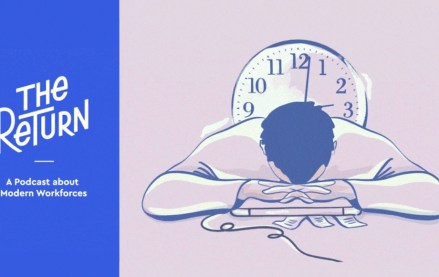
Agencies spend tens of thousands of dollars on market research and surveys to figure out what the heck Gen Z and millennials really want. But sometimes the answer is sitting on their living room sofa.
Teenage kids can be a huge source of knowledge for agency execs. “Having spent many years sitting at the kitchen table helping my daughter complete various homework assignments and school projects, I’m now able to literally turn the tables and ask for her guidance and opinions to gain extra credits myself,” said Ben Phillips, global head of mobile at MediaCom.
Jean Batthany, evp and executive creative director at DDB Chicago, considers herself “fairly fluent in social” but often taps the expertise of her 13- and 16-year-old daughters for help. One of her aha moments came when her younger daughter, Olivia, turned 13. “I asked if she wanted to start a Facebook account,” said Batthany. “Nope. Not interested. All her friends are on Instagram and Snapchat. She couldn’t care less about Twitter.”
That insight led Batthany to be able to talk to clients more confidently about what teenage girls may really want from mobile experiences.
For Phillips, who has a 12-year-old daughter, Ella, the big moment was figuring out how quickly she moves between apps and content. He was writing a piece about the “new rules of mobile” for his team and wondered if Snapchat ads would annoy her. Ella’s contribution: “Not if they’re funny, entertaining and relevant. I just don’t want to see ads for boys.”
Snapchat was a common thread for parent agency execs befuddled by the ephemeral messaging app. Batthany recalls that it “scared the crap” out of her when it first launched, since she could just imagine the dangerous possibilities for her older daughter, who is 16. But these days, as she sees lots of Snapchat ideas on integrated briefs, she has become more comfortable with it, thanks to coaching from Olivia.
William Gelner, chief creative at 180 L.A. used his daughters, aged 10 and 11 (but “going on 14”) when he needed to figure out who was cool in pop music for an assignment for HP. The brief was to make HP more relevant with millennials. The team threw around a bunch of pop stars they could call on — but it was his daughters who thought of Meghan Trainor, who had just come out with “All About that Bass.” “I didn’t even know about her, but my kids loved her,” said Gelner. That’s when he decided to forsake the people he was thinking of using in favor of using Trainor’s next song for a $20 million crowdsourced campaign featuring social celebrities like Bri Emery, Robby Ayala and Barkley the Pom. “[My daughters] are amazing,” said Gelner.
Figuring out the right influencers was also a challenge for Isobar U.S. president Jim Butler, who got his 16-year-old son, Jimmy, to help him out when he needed some strategy for a sportswear client that was trying to reach kids between 12 and 18. His big insight: the value of “lower-tier influencers” like star high school athletes who develop enormous fan followings on social media. “Jimmy is a high school athlete, sneaker expert and a tastemaker,” said Butler.
Homepage image from left: Ben Phillips with Ella; Jean Batthany with Olivia and Maya; William Gelner’s daughters Basia and Anika; Jim Butler and son Jimmy.
More in Marketing

With the rise of the chief AI officer, it’s time to examine ‘czar’ culture
Even if it’s a familiar pattern — hot new thing, new C-Suite exec to tackle said thing, a few years go by and that C-Suite position no longer exists as everyone is now doing said thing (or it was a fad that has since faded away) — does it make sense for businesses to continue to appoint new czars with every new trend?

Why Cava’s bid for brand awareness means prioritizing streaming ads
Fast-casual restaurant chain Cava has been in growth mode over the past year and is leaning into streaming ads in an effort to boost brand awareness.

A history of middle manager stress: The Return podcast, season 3, episode 1
In episode one, McKinsey partner Emily Field tells us more about why middle management is critically important to the workforce.





